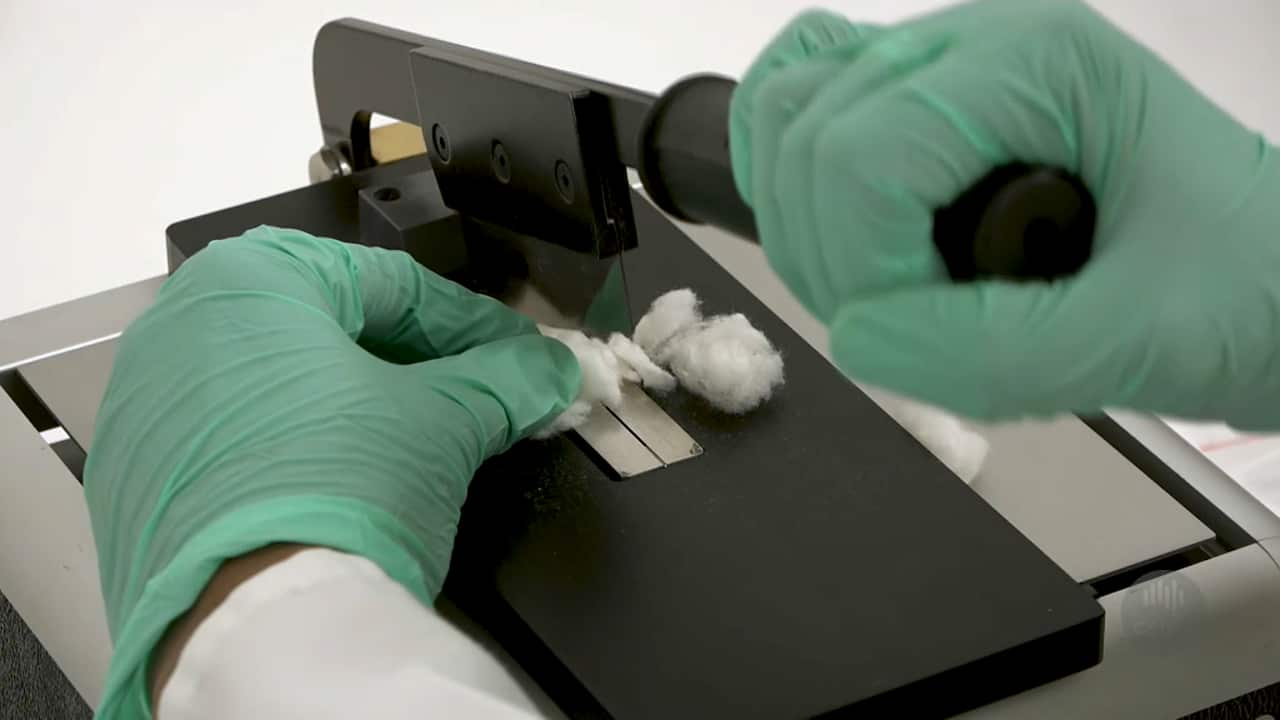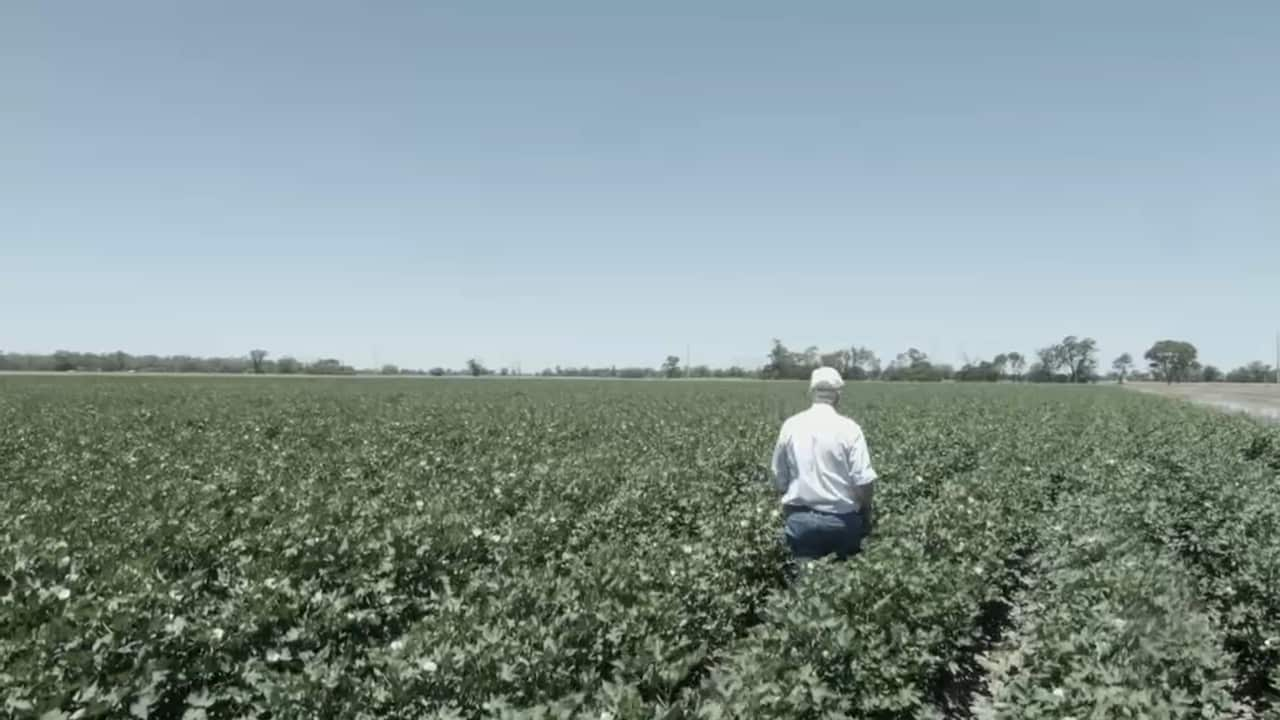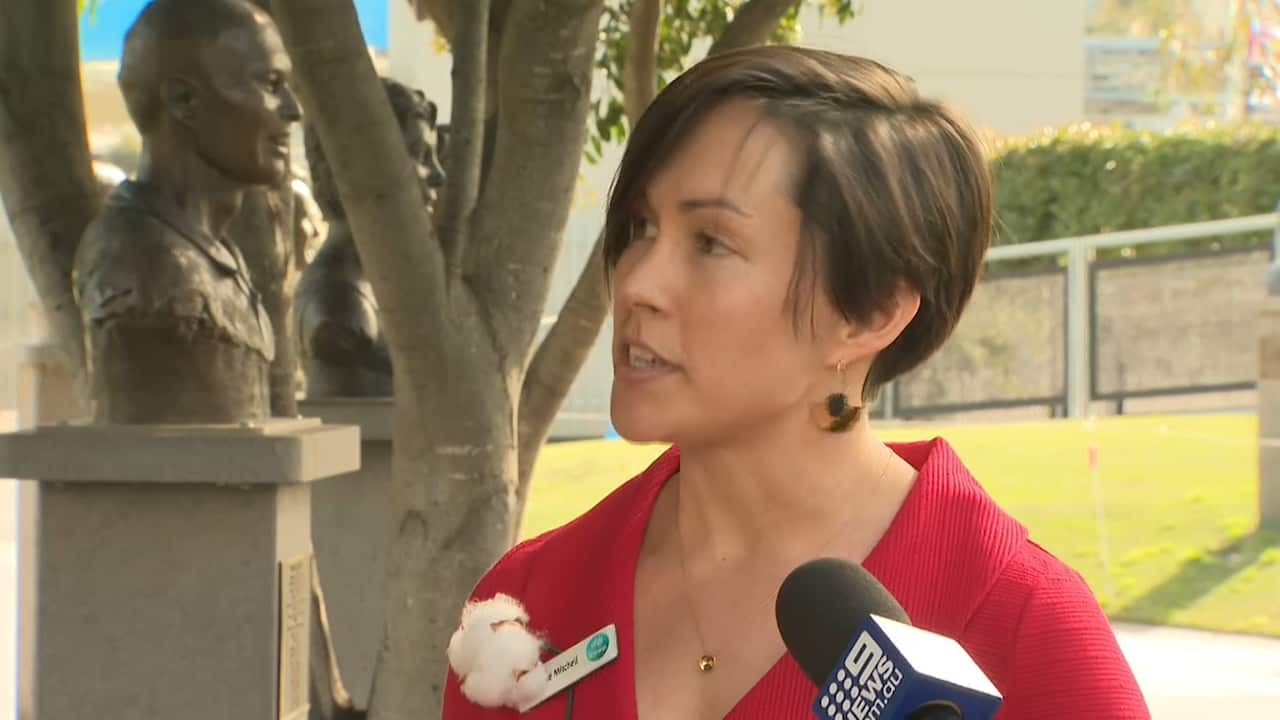The dream of a cotton shirt that does not need ironing could one day materialise into a reality, with CSIRO scientists on the case.
Researchers are examining what determines the length, strength and thickness of cotton fibres to see if a plant can be grown with the characteristics of a synthetic.

The CSIRO is in partnership with Cotton Seed Distributors. Source: SBS News
"Cotton often gets a bad rap environmentally but it is a natural, renewable fibre unlike synthetics which are made with petrochemicals," CSIRO scientist Dr Madeline Mitchell said in a statement.
"We're looking into the structure of cotton cell walls and harnessing the latest tools in synthetic biology to develop the next generation cotton fibre."
Through more than 30 years of improved cotton breeding using genetically modified techniques, the CSIRO and its partners Cotton Seed Distributors have led the way in reducing insecticide use in cotton growing by 85 per cent and cutting herbicide use by 60 per cent.

An Australian farmer on hos cotton farm. Source: SBS News
Australian cotton is also the most water efficient in the world.
It's hoped that same drive for innovation can lead to clothing with less environmental impacts when being washed.
Whenever a synthetic material such as polyester or nylon is cleaned, thousands of tiny non-biodegradable microfibres enter the waterways, building up in the food chain.
But when cotton is washed, the fibres shed are biodegradable and break down naturally.
"If we can produce next-generation cotton then we can take a large market share of the synthetics industry and that's a win not just for Australia's $2.5 billion industry but also for the environment," CSD managing director Peter Graham said.

CSIRO scientist Dr Madeline Mitchell. Source: SBS News
The next generation cotton research is part of a $13 million investment in science that applies engineering principles to biology.
The researchers' work will be on display in Melbourne this week at AgCatalyst, a showcase of CSIRO's technologies across the agriculture and food sectors.
Share

